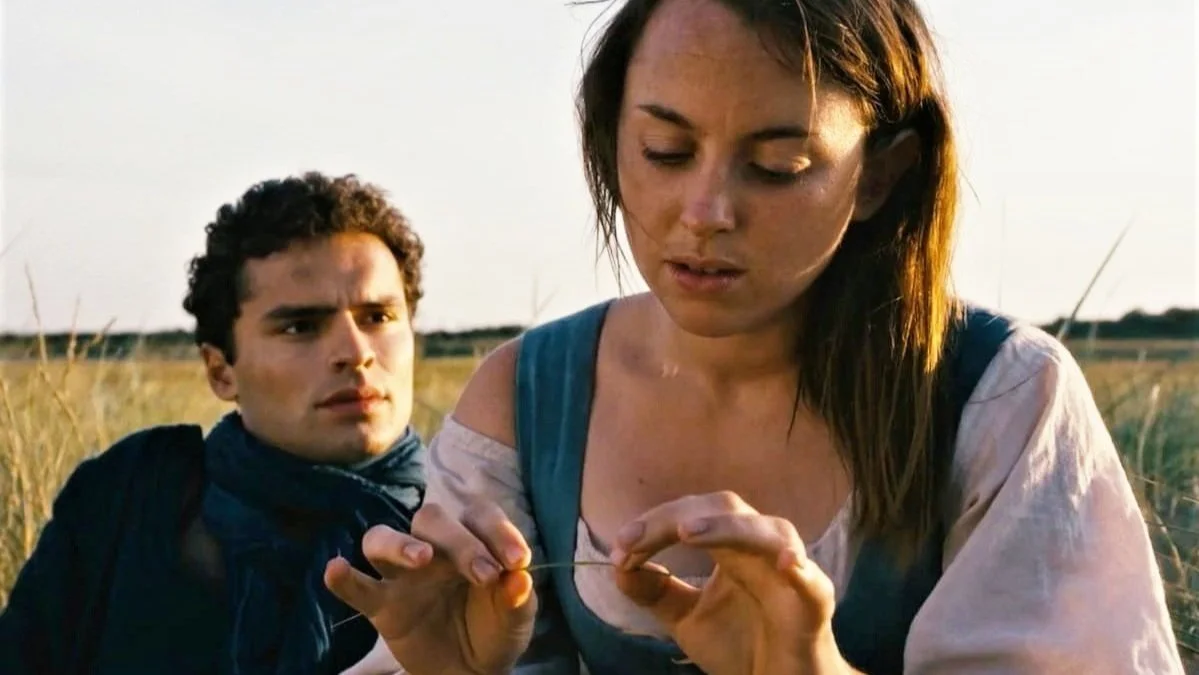Lapwing
Bigotry is at the fore in Philip Stevens’ feature directorial debut set on the Lincolnshire coast in 1554.
Not many people are aware that in the 16th century an act of parliament was passed in England designed to expel Romani people who were categorised wholesale as being dangerous and criminal. However, the Egyptian Act as it was called is known to Laura Turner who references it in her first screenplay, the film being Lapwing which also marks the full feature debut of its director, Philip Stevens. This ancient piece of racialist legislation aimed at immigrants offers a clear foreshadowing of issues in today’s world and we can assume that Turner and Stevens had this in mind when choosing to set their film way back in the past. Similarly, the fact that it is the story of how a young woman, Patience (Hannah Douglas), is seriously ill-treated by the men around her means that it is not lacking in contemporary resonance on that score too.
The setting is the rural coastline of Lincolnshire where Patience, who is mute, is part of a small group of salt farmers headed by David (Emmett J. Scanlan) who is married to Patience’s older sister, Lizzie (Sarah Whitehouse). Also among this company are Jacob (Lewis Gemmill) and his wife Mathilde (Sarah Xanthe), but the initial emphasis is on a meeting between Patience and an Indian youth named Rumi (Sebastian De Souza) who find themselves mutually attracted. Patience encounters Rumi because he belongs to a Romani group waiting nearby for a boat to take them abroad. David is helping them in return for a cash payment but that does not prevent him from being totally hostile when he discovers that the youngsters are indulging in a mixed race relationship. What is more, despite being married, David is not without designs on Patience himself although if anything of this leaks out he is ready to claim that she led him into it. It is not solely a case of the men holding the power but of this being a context in which it is easy for them to call women whores and to accuse them of witchcraft.
The potential behind the concept is apparent but in the event the modern parallels in Lapwing go for less than they might have done. The plight of the Romani characters is somewhat sidelined as the story goes on and, while the general drama of women’s inferior position in the 16th century is central throughout and Patience’s suffering is viewed with genuine sympathy, Laura Turner’s screenplay often fails to persuade us that the words are true to the period. Fortunately, Hannah Douglas is well cast as Patience and Sebastian De Souza a suitable romantic lead although his role is underdeveloped. Emmett J. Scanlan is particularly unlucky since the screenplay doesn’t give him the chance to convincingly convey the complex character of David whose behaviour is often deeply repellant but who ultimately does seem to be capable of remorse.
Made on a shoestring, Lapwing is a work which deserves encouragement despite what I take to be its weaknesses. Certainly there is promise in the direction by Philip Stevens and, even though the love story is handled with a number of over-romanticised images which clash with the brutal realities at the heart of the story, his photographer, Stewart MacGregor with whom he has made a number of short films, does him proud. The flat expanses of the Lincolnshire coast are admirably suited to the film’s ’Scope format.
MANSEL STIMPSON
Cast: Hannah Douglas, Emmett J. Scanlan, Sebastian De Souza, Sarah Whitehouse, Lewis Gemmill, Javed Khan, Sarah Xanthe, Arthur Stevens, Sophie Kamal, David Clayton, Matilda Gordon, Karen Crow.
Dir Philip Stevens, Pro Andy Mullins, Philip Stevens and Justin Tagg, Screenplay Laura Turner, Ph Stewart MacGregor, Pro Des Charlotte Ball, Ed Alastair Grimshaw, Music Lee Gretton, Costumes Pauline Loven.
Urban Apache Films/World Serpent Productions/Hyperreal Films/Inceptive Films-Bulldog Film Distribution.
89 mins. UK. 2021 Rel: 26 November 2021. Cert. 18.


